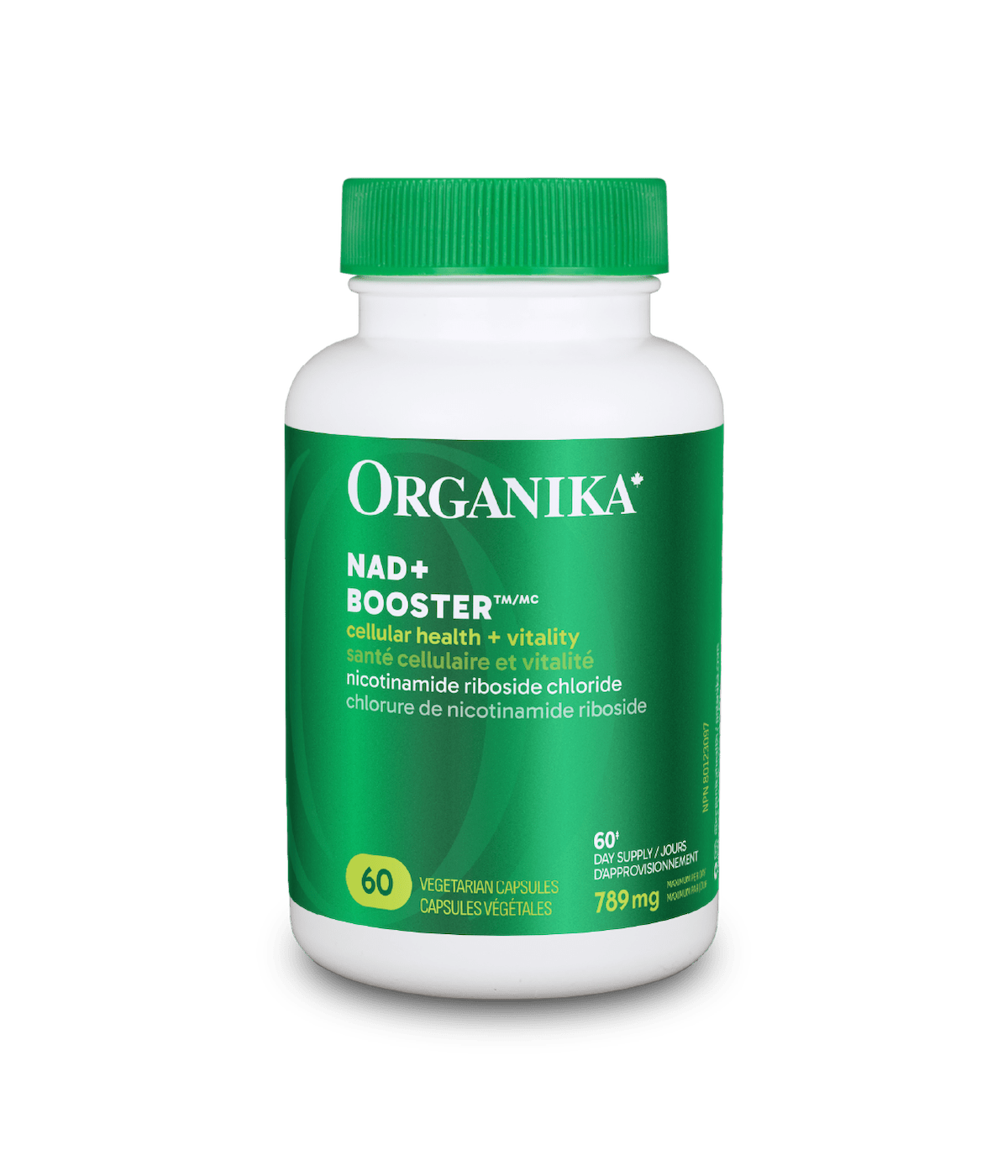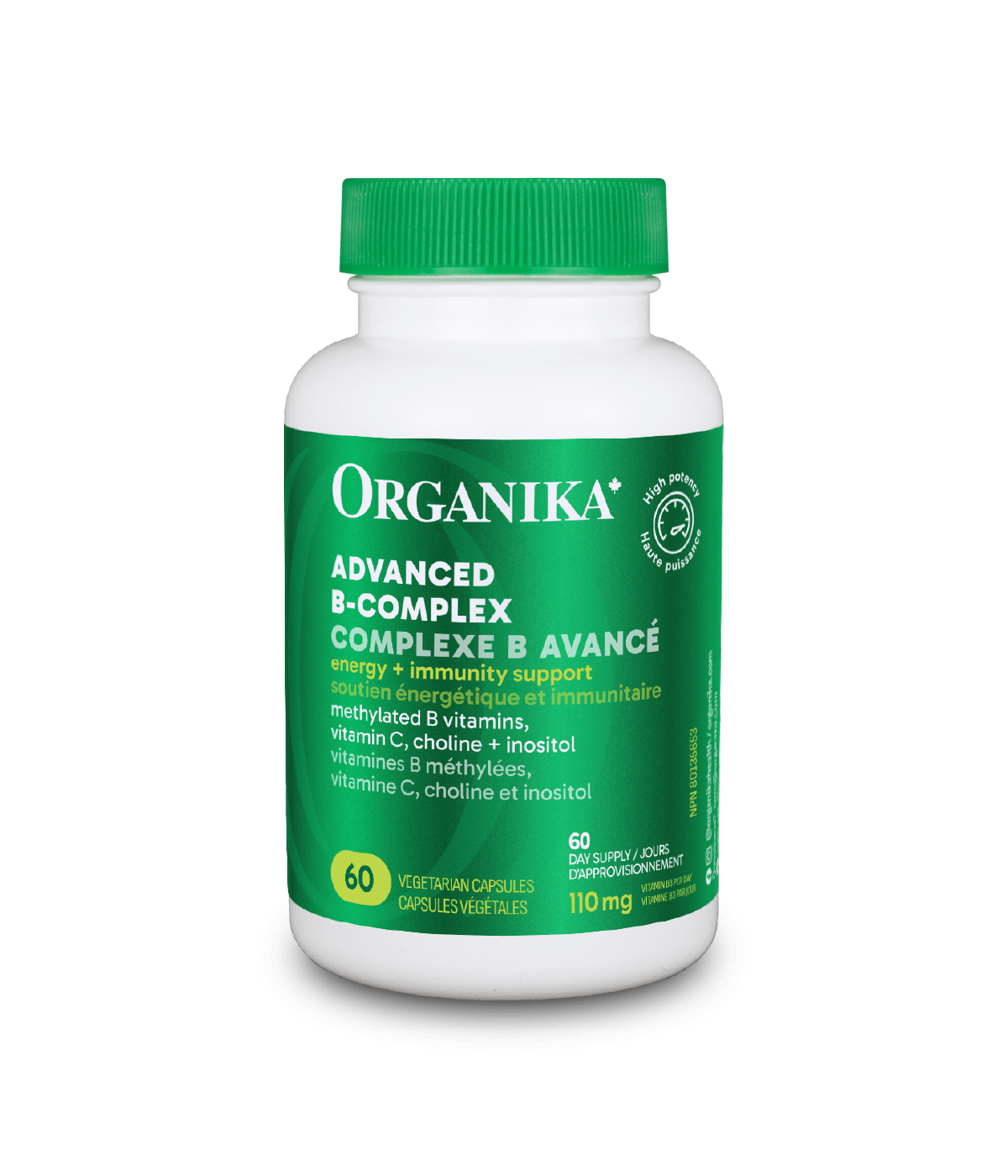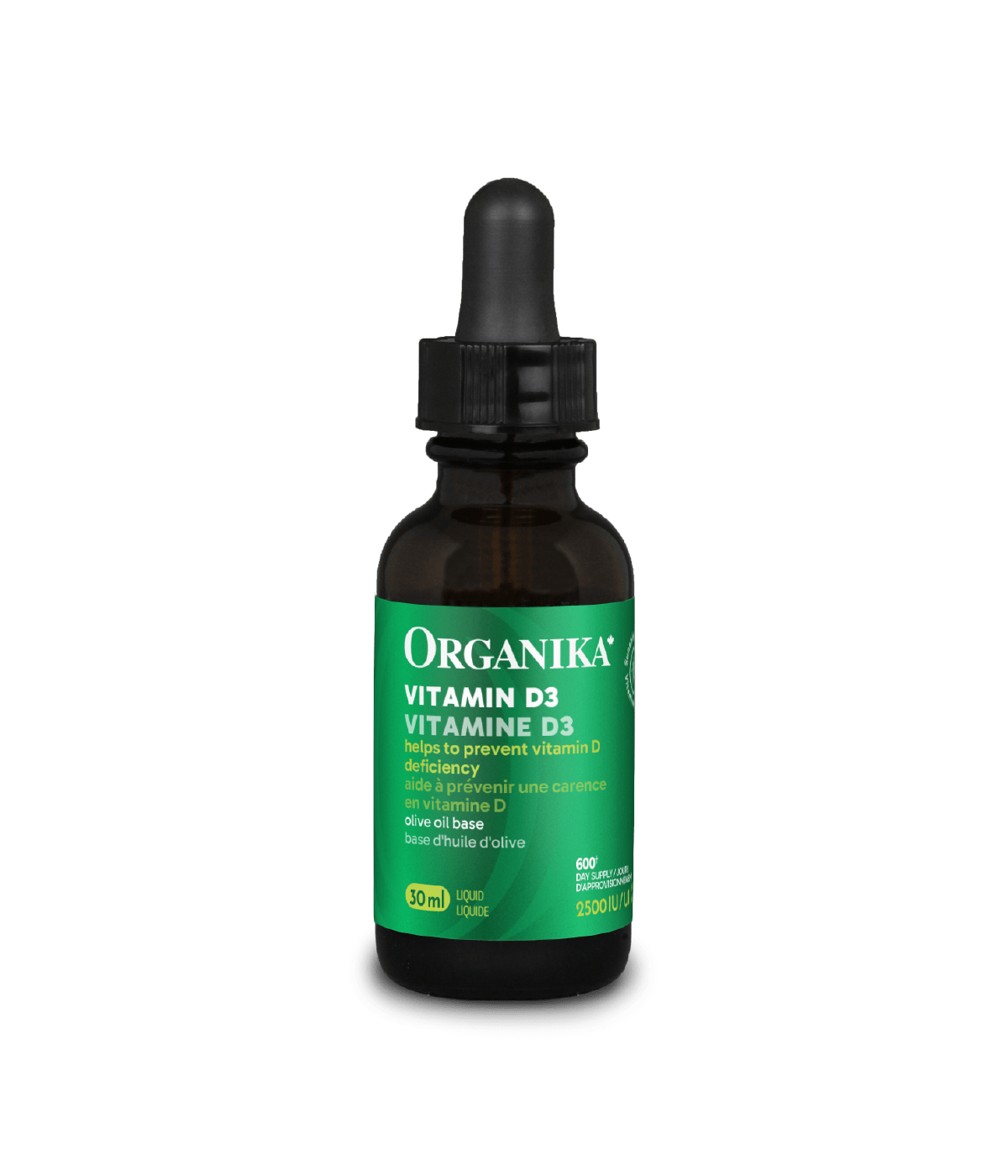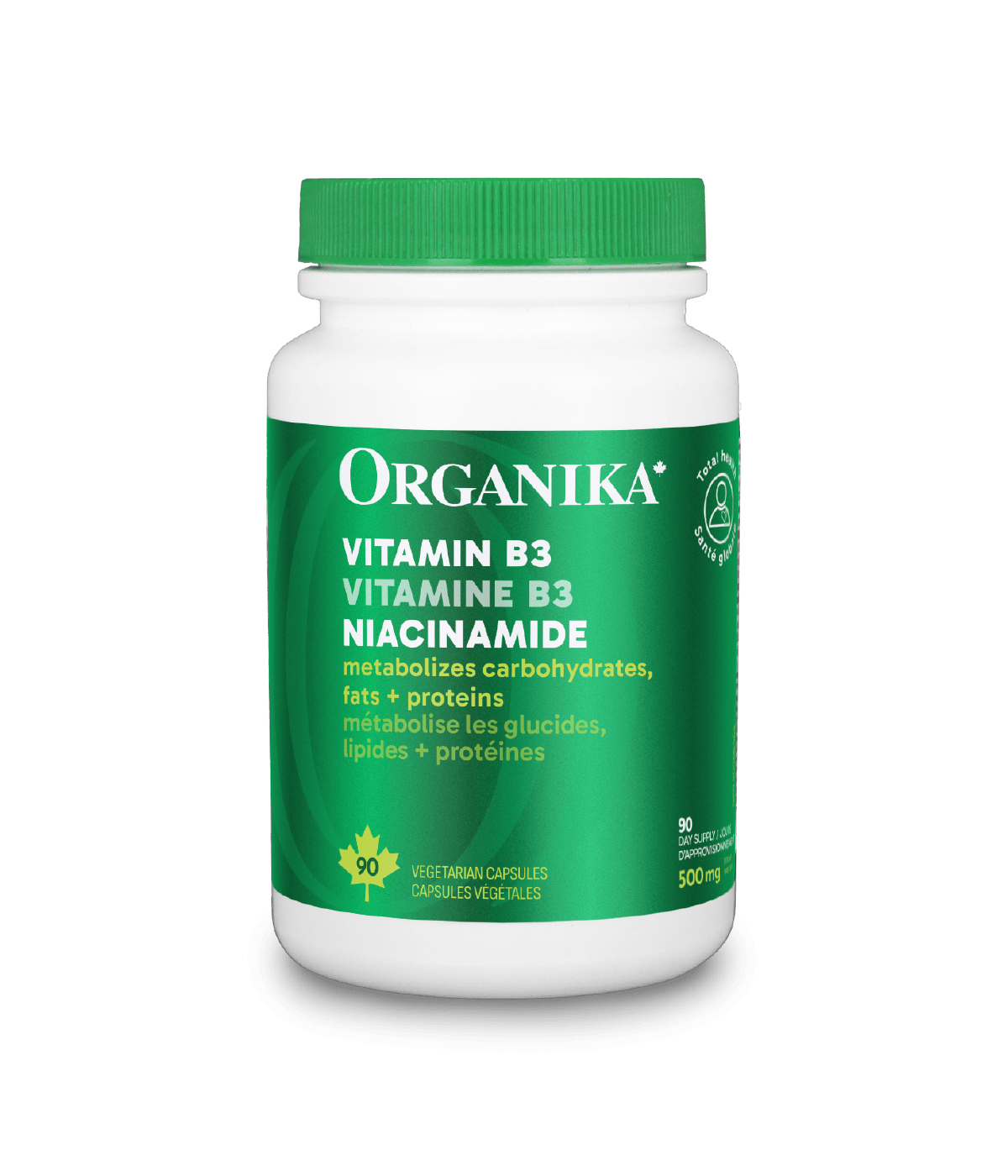
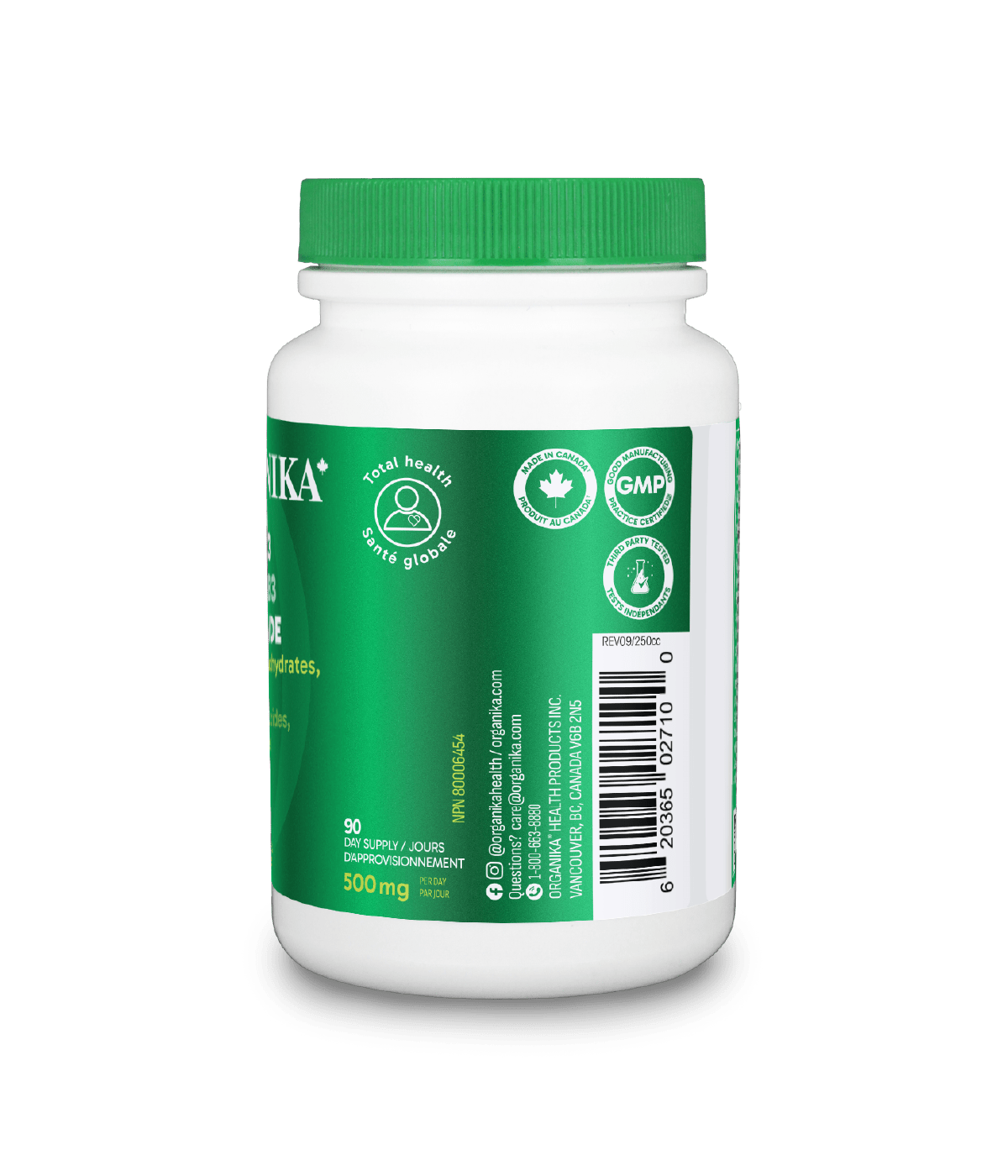
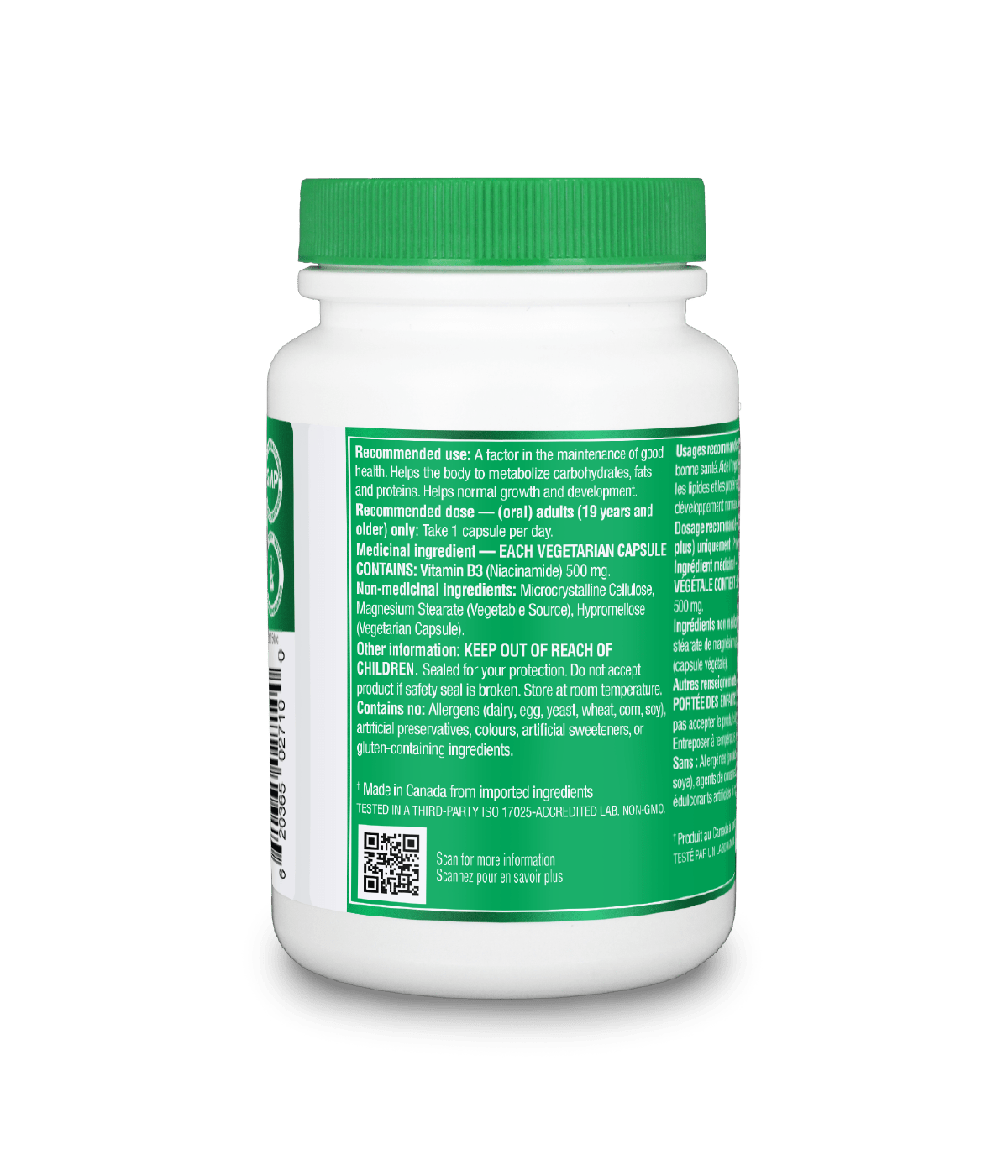
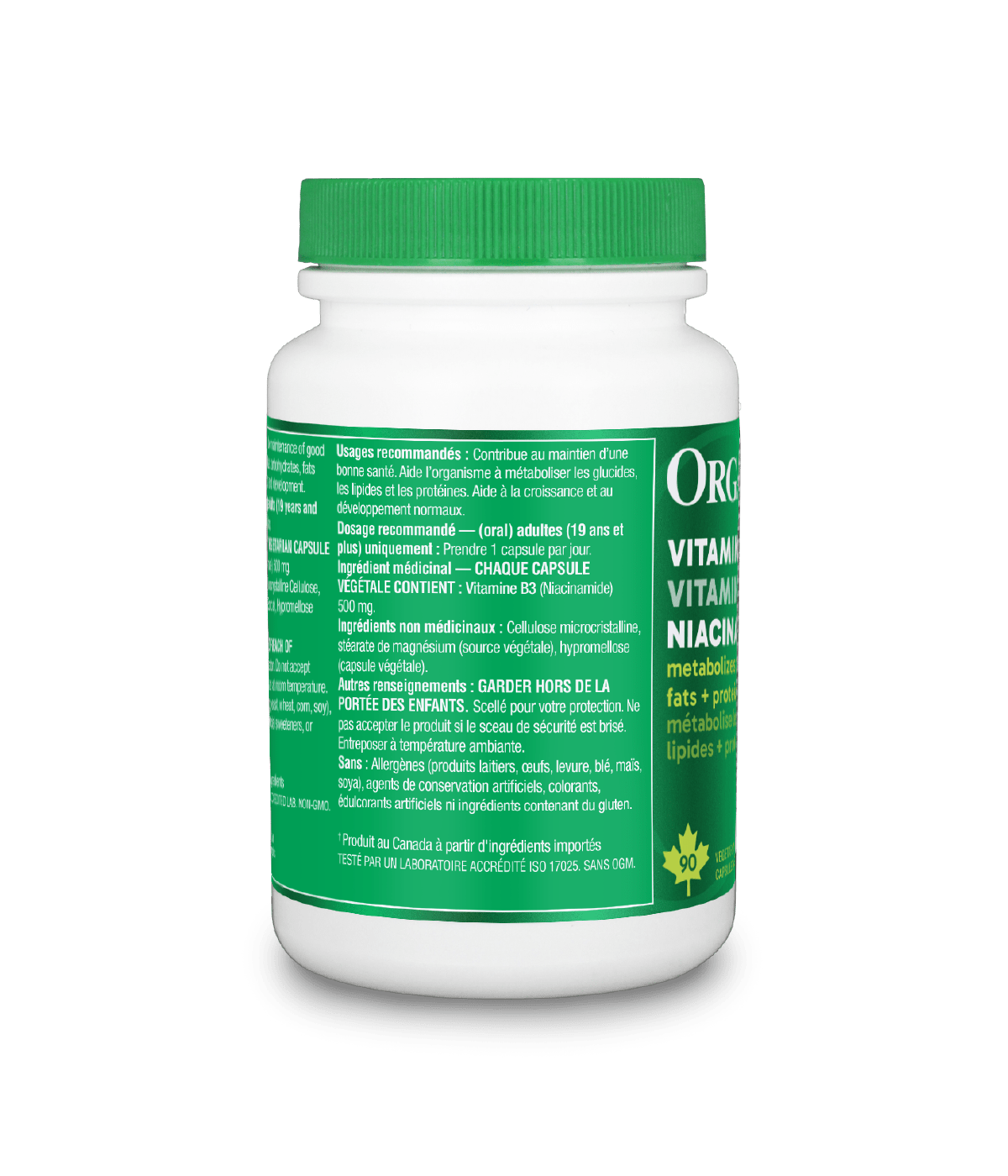




-
NewIs this right for you?

-


-


-

-

-

Vitamin B3 Niacinamide
Simple, effective support to fuel your body’s energy metabolism
- Helps convert carbohydrates, fats and proteins into energy
- Supports cellular energy and tissue repair
- Supports skin regeneration and repair
- Metabolizes nutrients
Impossible de charger la disponibilité du service de retrait


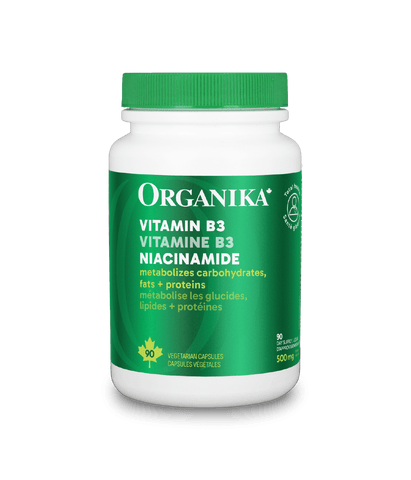
Notify Me When Available
Enter your email and we'll let you know as soon as this product is back








Supplement Facts




Ingredients & Nutrition
MEDICINAL - EACH VEGETARIAN CAPSULE CONTAINS: Vitamin B3 (Niacinamide) 500 mg.
NON-MEDICINAL: Microcrystalline Cellulose, Magnesium Stearate (Vegetable Source), Hypromellose (Vegetarian Capsule).
Is This Right for You?
Do you want more natural energy from the food you eat?
Are you looking to support healthy skin repair and regeneration?
Do you want to help your body recover and repair tissues efficiently?
Are you looking for an easy way to support your body’s energy metabolism every day?
If you answered ''yes'' to any of the above, this product is right for you.

-
Supports skin regeneration and repair
-
Metabolizes nutrients
Ingredients & Nutrition
Recommend For
Do you want more natural energy from the food you eat?
Are you looking to support healthy skin repair and regeneration?
Do you want to help your body recover and repair tissues efficiently?
Are you looking for an easy way to support your body’s energy metabolism every day?
If you answered ''yes'' to any of the above, this product is right for you.
Gluten-Free
Caffeine-Free
Non-GMO
Vegan Friendly
No Artificial Sweeteners
No Artificial Colours or Flavours
Vitamin B3 Niacinamide gives your body simple, everyday support for turning food into lasting energy


The Full Scoop

-
Supports skin regeneration and repair
-
Metabolizes nutrients
Niacinamide, also known as vitamin B3, plays a vital role in your body’s natural energy metabolism. This essential nutrient helps convert carbohydrates, fats, and proteins you eat into energy—making sure your body has the necessary fuel to run smoothly. Organika’s Vitamin B3 Niacinamide offers easy support for your foundational health.
Ask Away
We’ve got the FAQs covered. But if you’re still stuck, we’re only a message away.
Get in TouchWhat is the difference between niacin and niacinamide?
Niacinamide is a form of niacin that is made when you have excess niacin in your body. Niacin plays an important role in maintaining good health of your heart. Metabolism, blood vessels. Niacinamide, another form of vitamin B3 is more commonly used for skin concerns. It helps support skin hydration, calm skin flushing/redness.
Can I take this supplement with other B vitamins?
Yes, as a matter of fact, many complex vitamins often contain Vitamin B3!
Is this product suitable for vegans or vegetarians?
With the change from gelatin capsules to now vegetarian capsules, yes!
Will this cause flushing like regular niacin?
No it will not cause flushing, as there is a slightly different chemical structure, which ultimately doesnít cause flushing. Whereas niacin activates receptors in your skin that can trigger flushing.
When is the best time of day to take this supplement?
There is no specific time to take this supplement. It ultimately depends on the individual.
Can I take this on an empty stomach?
Taking it on an empty stomach may cause mild nausea or slight stomach discomfort. It is better to take it with food or a small snack.
Is this product safe for long-term daily use?
It is generally safe for long term daily use
Are there any interactions with medications I should be aware of?
Generally it should be okay with interactions with medications. However, it would be best to check with a healthcare professional.
Is this supplement safe during pregnancy or breastfeeding?
Standard doses of Niacinamide are usually safe during pregnancy and breastfeeding, however always check with a healthcare professional to make sure it is appropriate for you!
You'll Likely Also Love...
NAD+ Booster
Cellular vitality starts here
Advanced B-Complex
Power up with fast-acting B-Complex for focus, energy and immune health
NMN + PQQ
A daily boost for energy, focus and healthy aging
Vitamin D3
The sunshine vitamin in an olive oil base you'll love
Support Beyond Products
Protein is a vital macronutrient, essential for building and repairing tissues, supporting immune health, and maintaining muscle mass. But how much protein do you actually need each day? The answer depends on various factors, including age, activity level, and overall health. Let’s break it down. The General Recommendation The Recommended Dietary Allowance (RDA) for protein is 0.8 grams per kilogram of body weight per day. For example: A sedentary woman weighing 60 kg (132 lbs) would need about 48 grams of protein per day. A sedentary man weighing 75 kg (165 lbs) would require about 60 grams of protein daily. However, the RDA is the minimum amount to prevent deficiencies—not necessarily the optimal amount for health and performance. Recent evidence indicates that these requirements may be underestimated. Analyses suggest higher needs of 0.91 g/kg to 1.2 g/kg for healthy adults based on refined nitrogen balance studies (Elango et al., 2010). Active Individuals and Athletes If you’re physically active or an athlete, your protein needs increase to support muscle repair and growth. Research suggests that: Endurance athletes may benefit from 1.2-1.4 grams per kilogram. Strength athletes or those focusing on muscle building may need 1.6-2.2 grams per kilogram. For example, a 70 kg (154 lbs) athlete may require between 84-154 grams of protein daily, depending on the type and intensity of exercise. Additionally, increasing protein intake can enhance lean body mass and strength, particularly in those engaging in resistance exercise, with optimal intakes of 1.2–1.6 g/kg for different age groups (Nunes et al., 2022). Protein Needs for Older Adults As we age, maintaining muscle mass becomes crucial to prevent sarcopenia (age-related muscle loss). Older adults often require 1.0-1.2 grams per kilogram to preserve muscle mass and overall physical function. For those with chronic illnesses, higher intakes of 1.2-1.5 grams per kilogram may be recommended (Bauer et al., 2013). Protein intake above 1.2 g/kg/day is associated with higher muscle, bone, and fat mass in elderly women, highlighting its role in reducing the risk of frailty (Genaro et al., 2015). Special Considerations for Women Women, particularly during pregnancy, lactation, or menopause, may have different protein requirements. For example: Pregnant women should aim for an additional 25 grams of protein daily to support fetal development. Postmenopausal women may benefit from higher protein intakes to counteract muscle and bone loss. Protein and Weight Management Higher protein intake can also support weight management by promoting satiety and preserving lean muscle during weight loss. A daily protein intake of 1.2-1.6 grams per kilogram may help regulate appetite and improve body composition. How to Meet Your Protein Needs To meet your protein requirements, include a variety of high-quality protein sources in your diet, such as: Animal-based proteins: Chicken, fish, eggs, dairy, and lean meats. Plant-based proteins: Beans, lentils, tofu, quinoa, and nuts. Protein supplements: Powders or bars for convenience, especially for athletes or busy individuals. A Practical Approach For most adults, aiming for 15-30 grams of protein per meal and including protein-rich snacks can help you meet your daily needs. Filling in the gaps with Organika's Protein Collection can help meet the daily requirements for protein. Remember, spacing your protein intake throughout the day is beneficial for muscle synthesis and overall health The Bottom Line Protein needs vary based on individual factors like age, activity level, and health status. While the general RDA is a helpful starting point, many people benefit from higher protein intakes to support muscle health, weight management, and overall well-being. Recent studies highlight that optimal protein intake ranges from 1.2–1.6 g/kg for active individuals and aging populations, ensuring improved health outcomes (Nunes et al., 2022). Listen to your body, assess your lifestyle, and consult with a healthcare professional to determine the right amount of protein for you. Refrences https://www.semanticscholar.org/paper/Evidence-based-recommendations-for-optimal-dietary-Bauer-Biolo/3b5ed38cde7aea3a2b32d08d88bcf0e8b89534b8 https://www.semanticscholar.org/paper/Meta-analysis-of-nitrogen-balance-studies-for-in-Rand-Pellett/ce31c216199e8208c317fa07376ffe5b87a96e6d https://elicit.com/notebook/fc08fde6-3740-4cd3-bcf5-f0cc6d3117ba#18108bc23692d568ce6b3ab355e8f1d1
read moreFor those that enjoy alcohol, consuming too much often results in hangover symptoms – so can electrolytes help? The answer is yes. Electrolytes are essential to recovering from hangovers. To understand this concept let’s discuss what happens when you are hungover and what your body is telling you about it's needs. What happens to your body when you're hungover? If you have ever been hungover, you know that it typically occurs when the blood alcohol concentration (BAC) decreases, and the body begins to metabolize and eliminate the alcohol. What is happening is that your body is undergoing a physiological change to combat alcohol in the system. Common symptoms of a hangover include: Headaches, fatigue, nausea or vomiting, sensitivity to light, muscle aches and pains, cognitive difficulties, and feeling severely dehydrated. A bit more on common hangover symptoms... Dehydration: Alcohol is a diuretic, meaning it increases urine production, leading to fluid loss and dehydration. Hence why you get dry mouth, excessive thirst, dizziness, and fatigue. Electrolyte imbalance: Alcohol disrupts the balance of electrolytes in your body, including sodium, potassium, and magnesium. This is why you feel muscle weakness, fatigue, and muscle cramps. Gastrointestinal irritation: Alcohol irritates the lining of the stomach and intestines, leading to nausea, vomiting, and stomach discomfort. Inflammatory response: Alcohol triggers an inflammatory response in the body, which can contribute to headaches, muscle aches, and overall feelings of discomfort. How do electrolytes cure hangovers? Electrolytes can potentially help with some symptoms of a hangover. Drinking alcohol can lead to increased urine production, which can result in fluid and electrolyte loss. Replenishing electrolytes can help restore the body's electrolyte balance and alleviate some symptoms associated with dehydration, such as fatigue, muscle weakness, and headaches. However, it's important to note that electrolytes alone cannot reverse the effects of excessive alcohol consumption or fully relieve all hangover symptoms. It’s important to also rest and consume nutritious foods with protein to recover. Hot tips to avoid hangovers. While you're drinking alcohol, consume a glass of water with electrolytes for every glass of alcohol you drink. Carry convenient on-the-go sachets with you if attending parties or events. Remember to drink a tall glass of electrolytes before going to bed. Try cocktail recipes (made with electrolytes) in place of sugar-filled juices. For example: Wild Berry Electrolytes + Enhanced Collagen Bellini Doing these things can help prevent some hangover symptoms the next day.
read moreIf there's one lesson to be learned from the past year, let it be this: health is a necessity, not a luxury. We want you to live your healthy best - and to support you in getting there. Whether you're new to the wellness world, or a wellness expert looking for new ways to stay healthy, let's dive right in and get to know our top natural immunity supplements and superfoods to help keep your immune system thriving! 1. Bee Propolis for Immunity How does bee propolis support immunity? Bee Propolis is a potent antimicrobial agent that bees use to protect their hives. We harnessed its power to create an immunity supporter that's second to none at fighting infections and inflammation, like sore throats. Locally sourced in the Okanagan Valley, BC, our liquid bee propolis has a unique antioxidant profile, for well-rounded protection. What are the benefits of bee propolis? Fights sore throat, canker sores and oral inflammations. Diverse source of antioxidants for potent immunity support. Easy to take liquid formula - especially for children and the elderly! Shop Bee Propolis 2. Reishi for Immunity How does reishi support immunity? The King of Mushrooms to the rescue! Reishi mushrooms have been traditionally used for immunity and stress support for at least four thousand years. As an adaptogen, reishi helps modulate and support the immune system, especially during times of increased stress. What are the benefits of reishi? Modulates and supports the immune system. Excellent source of antioxidants, to support immune function. Adaptogen, helping prevent mental and physical fatigue related to stress. Shop Reishi 3. Vitamin C for Immunity How does vitamin C support immunity? Well known for its role in helping your immune system combat attacks from colds and flus, vitamin C is also an important antioxidant for our body. Each Instant C Effervescent tablet provides 1,000 mg of vitamin C and dissolves quickly in water to make a refreshing beverage in three natural flavours: Orange, Raspberry or Peach Mango. What are the benefits of Instant C Effervescent? Helps immune system combat attacks from colds and flus. An antioxidant for protecting the body from oxidative damage. Important for collagen, connective tissue and cartilage formation. Check out our newest Immunity Instant C, D, Zinc Immunity in Peach and Watermelon. Shop Instant C 4. Zinc for Immunity How does zinc support immunity? Zinc is an essential trace mineral with many important roles in the body, such as ensuring normal functioning of the immune cells. Organika’s Chelated Zinc offers a potent yet well-tolerated dose of this vital mineral to help the body fend off infection without stomach discomfort. What are the benefits of zinc? Supports immune function. Helps maintain healthy skin. Helps the body to metabolize carbohydrates, fats and proteins. Chelated formula for better absorption. Shop Chelated Zinc 5. Probiotics for Immunity How do probiotics support immunity? Did you know almost 70% of our entire immune system resides in the gut? Help the integrity of your gut health so your immune system can flourish with Organika’s Probiotic + Prebiotic Powder, a blend of four clinically proven probiotic strains and Actilight, a prebiotic fiber extracted from beetroot. What are the benefits of Probiotic + Prebiotic powder? Help support intestinal health and promote a balanced gut flora. Improve digestive discomfort due to mild functional bowel disorders. Provides 250 million CFUs + 2.5 grams prebiotic fibre per sachet. Shelf stable - no refrigeration required! Shop Probiotic + Prebiotic Powder 6. Quercetin for Immunity How does quercetin support immunity? Quercetin, a bioflavonoid widely found in plant foods, has been studied particularly for its antiviral properties. Bromelain, when in combination with quercetin, helps to improve its absorption. What are the benefits of Quercetin with Bromelain? Studied for its antiviral, antioxidant, antihistamine and anti-inflammatory properties. Includes the naturally occurring enzyme bromelain, which helps to decrease inflammation. Shop Quercetin with Bromelain 7. Spirulina for Immunity How does spirulina support immunity? Spirulina is an edible single-celled organism that contains all essential amino acids. It provides an excellent source of antioxidants and iron, helping support the immune system with much-needed nutrients for its healthy function. What are the benefits of spirulina? High in antioxidants, including beta-carotene. Vegan-friendly source of protein and iron. Shop Spirulina 8. Bone Broth for Immunity How does bone broth support immunity? Bone broth is a highly nutritious type of stock made by simmering animal bones and connective tissues. Add Organika's broth powders to your kitchen arsenal and support your immunity with a high protein, gut-healing, low sodium alternative to conventional bouillon. What are the benefits of bone broth? Heal and strengthen the gut (where roughly 70% of one’s immune tissue is found). Full of easy-to-digest nutrients, required to strengthen the immune system. Free from added hormones, antibiotics, heavy metals and pesticides. Shop Bone Broths 9. Black Cumin Seed Oil for Immunity How does black cumin seed oil support immunity? Traditional oils for the win! The medicinal benefits of black cumin seed are prized in Middle Eastern and African communities, where it has been used as a remedy for respiratory ailments for centuries. What are the benefits of black cumin seed oil? Traditionally used to treat cough, bronchitis, fever, asthma and influenza. High in thymoquinone, a volatile oil with antioxidant and anti-inflammatory properties. A source of linoleic acid, studied for its balancing effects on the inflammatory response. Shop Black Cumin Seed Oil 10. Colostrum for Immunity How does colostrum support immunity? Build your immunity! Colostrum is a substance derived from cow’s milk. Chock-full of nutrients necessary for growth and development, colostrum has immunomodulating effects to support your immune function, particularly of the upper respiratory tract. What are the benefits of colostrum? Helps to support immune function within the throat and nasal passage. Sourced from free range, grass fed, added hormone-free grade A cows from the USA. Shop Colostrum 11. Vitamin D for Immunity How does Vitamin D support immunity? Known as the “sunshine vitamin,” vitamin D plays many important roles in the body and immune health is one of them! It helps to elevate the work that your immune cells do to fight off viruses and bacteria; so particularly important to defend your health. What are the benefits of Vitamin D? Helps the immune system fight off bacteria and viruses Helps in the development and maintenance of bones and teeth Shop Vitamin D 12. Electrolytes for Immunity How do electrolytes support immunity? Hydration is important for immunity! Staying hydrated involves having a balance of electrolytes (specific essential minerals). A deficiency in these nutrients compromises your immune health (amongst other things). These nutrients include sodium, magnesium, and potassium. What are the benefits of electrolytes? Instant hydration to support during exercise, heat, travel or illness Play a role in various reactions throughout the body and needed for optimal health Shop Electrolytes
read more





